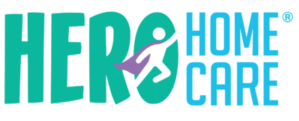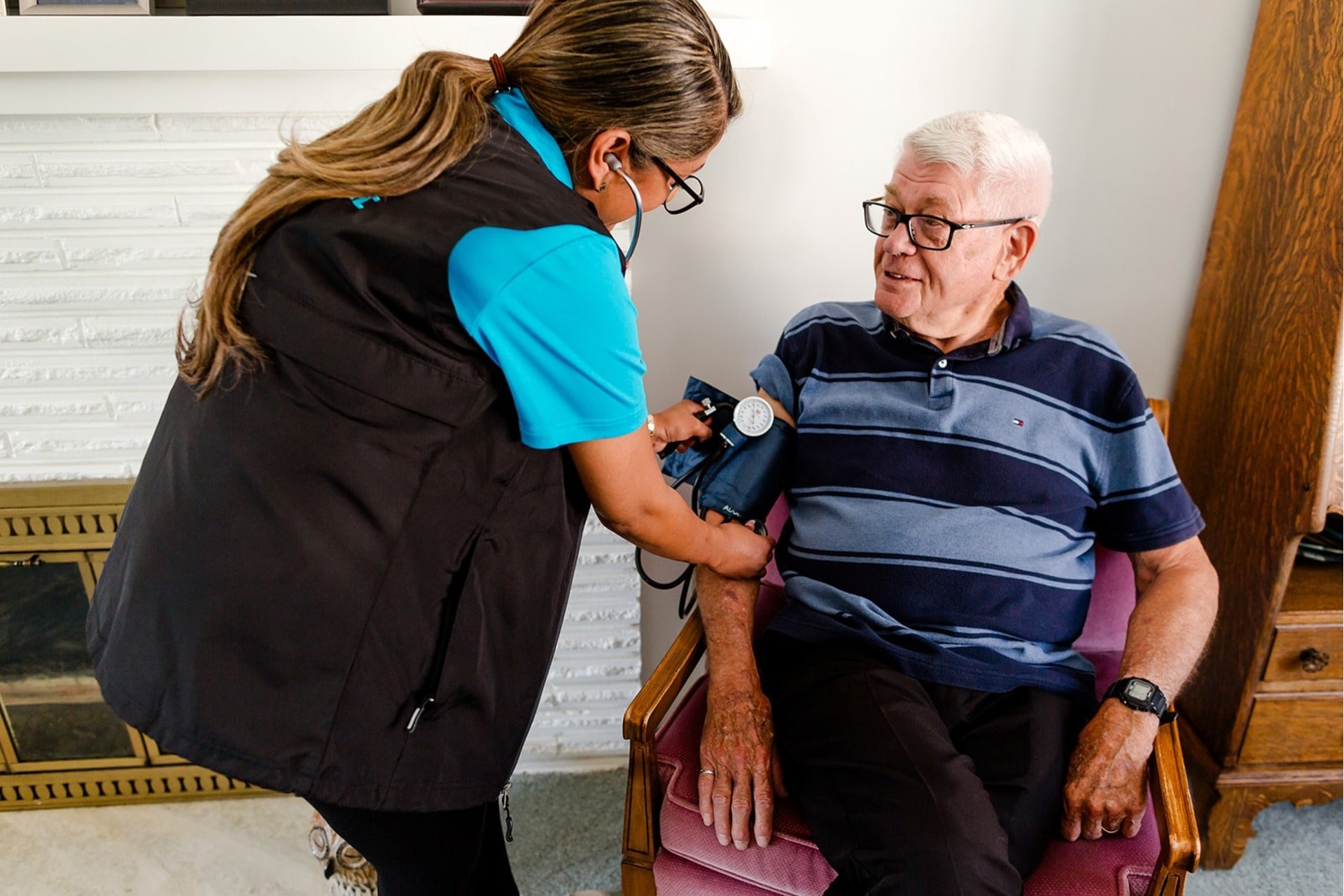Are you new to in-home care aides for seniors? Familiarizing yourself with the process can help ease the transition for you and your loved one.
Caregiver support at home helps improve a senior’s quality of life, turning a potentially lonely or stressful day into a day filled with interaction and much-needed one-on-one support. For many individuals, the arrival of their caregiver is a highlight of their day. They look forward to the time they spend together and the independence it offers.
Respite care companies provide customized support for their patients’ needs. Some caregivers for seniors can provide full-day or overnight support, drop in for a few hours each day, or provide daily wellness check phone calls.
Interested in learning more about the daily routines of a senior home caregiver? Continue reading for an inside look from our Hero Home Care team.
Typical morning routines
When our caregivers arrive, they check in with patients and their families. We’re looking for any changes in health and wellness and to understand their needs for the upcoming day. If we’re relieving another family member or caregiver, we have a short chat with them to see if there are any updates.
If there are no immediate health or care needs, we often share a morning cup of coffee or tea with our clients. This is an excellent time for us to engage in morning conversations and start the day by supporting clients’ social needs.
Responsibilities and Support
The rest of the day (or shift) depends on the patient’s needs. Here are a few examples of caregiver activities that may be included in a daily routine for your loved one:
- Companionship for seniors: Socialization with caregivers is essential for their mental and social wellness. Socially isolated seniors often welcome when caregivers engage in friendly conversations, play a game of cards with them, read a book together, or watch their favourite shows.
- Personal care: You want your loved one to look and feel their best. That’s why elderly care includes help with personal care such as bathing, dressing, toileting, grooming, oral hygiene, and hair and skin care. This may include driving the patient to the hair salon or for appointments.
- Homemaking services: A clean and tidy home is important, especially for seniors. That’s why caregiver support includes help with basic domestic chores like laundry, dishes, and cleaning.
- Meal prep: Caregivers can also prepare meals. Many medications should be taken at meal times or with large glasses of water so meal preparation (and overseeing) can ensure your senior gets essential nutrients and the full benefit of their medications. Caregivers often get to know their patients really well and can help prepare their favourite dishes.
- Medication management: If your loved one has a medication schedule, we can ensure they take their meds on time. An experienced caregiver can review medications with your loved one’s doctors and ensure they’re taken on time. Knowing your loved one is staying on their medicines gives you peace of mind.
- Dementia support & Alzheimer’s care: Look for an in-home caregiver who understands the unique needs and challenges of those with dementia and Alzheimer’s. Your caretaker can create routines to make your loved one’s life easier and help them stay on top of homemaking and personal care.
Unsure if your loved one is experiencing dementia or just normal cognitive decline? Learn more about the differences between normal ageing and dementia.
- Transportation: When your loved one has medical or personal appointments, our caregivers can provide local transportation or go with them on public transit.
- Nursing care: We can provide nursing services for loved ones who want to age in place. This will be customized to the patient’s needs and may include medication administration, wound care, catheter care, nursing assessments, and post-operative care.
- End-of-life care: Daily routines may be different for end-of-life care patients. A caregiver can provide comprehensive care and domestic support for your loved one so you can focus on spending these precious moments together.
End of day routines
At the end of a caregiver’s day or shift, they go through a checklist. These items depend on the patient’s needs but typically include anything needed to ensure the senior is safe and self-sufficient until the next caregiver arrives. Common end-of-day routines may include:
- A hand-over to the next caregiver
- Ensuring all daily tasks have been completed
- Checking that the senior has enough medication until the next visit
- Prepping meals
- Ensuring the house is cleaned up and safe for the senior
- Helping the senior prepare for bedtime
- Locking the door behind them before they leave
Whether you need a full-time caregiver or occasional compassionate support at home, a caregiver from Hero Home Care provides personalized care and support for your loved one’s needs. Our caregiver work diligently to stay on top of patients’ health and wellness requirements, including their domestic and social needs.
The ultimate goal of an in-home caregiver is to make a difference in their clients’ lives. If you have a loved one who needs regular or occasional care, book a complimentary in-home care consult with Hero Home Care to learn about our services available to help them age in place safely and healthily.

